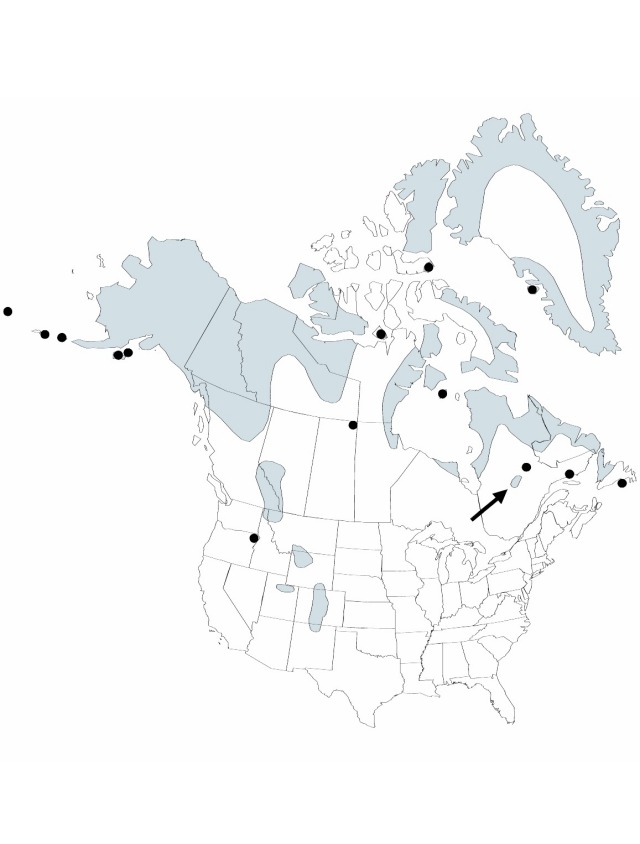Difference between revisions of "Juncus triglumis"
Sp. Pl. 1: 328. 1753.
FNA>Volume Importer |
FNA>Volume Importer |
||
| Line 55: | Line 55: | ||
|publication year=1753 | |publication year=1753 | ||
|special status= | |special status= | ||
| − | |source xml=https://jpend@bitbucket.org/aafc-mbb/fna-data-curation.git/src/ | + | |source xml=https://jpend@bitbucket.org/aafc-mbb/fna-data-curation.git/src/f6b125a955440c0872999024f038d74684f65921/coarse_grained_fna_xml/V22/V22_458.xml |
|genus=Juncus | |genus=Juncus | ||
|subgenus=Juncus subg. Alpini | |subgenus=Juncus subg. Alpini | ||
Revision as of 19:03, 24 September 2019
Herbs, perennial, cespitose, 0.3–3.5 dm. Culms 1–8, 0.3–0.5 mm diam. Cataphylls 1–2. Leaves basal, 2–4; auricles slightly prolonged, rounded, scarious to ± leathery; blade deeply channeled, 2–10 cm, mostly shorter than culms. Inflorescences solitary heads, each with 2–3(–50) flowers; primary bracts brownish, nearly equal to or slightly shorter thanabout equaling inflorescence. Flowers: tepals pale brown or darker, oblong-lanceolate, 3–5 mm, outer and inner series nearly equal; stamens 6, filaments 2.5–4 mm, anthers 0.6–1 mm; styles 0.5–0.8 mm. Capsules tan, pseudo-3-locular, 3-gonous–cylindric, apex obtuse, mucronate. Seeds tan or darker, fusiform, body 0.5–1 mm, tails 0.6–1 mm.
Distribution

North America, Eurasia.
Discussion
Varieties 3 (2 in the flora).
Selected References
None.
Key
| 1 | Most proximal bracts of inflorescence obtuse to mucronate, usually much shorter than inflorescence; capsules well exserted from perianth, 4.5–7 mm, apex conic or rounded proximal to persistent style | Juncus triglumis var. triglumis |
| 1 | Most proximal bracts of infloresecence equal to or longer than inflorescence, apex long acuminate or awned; capsules included or barely exserted from perianth, 3–5 mm, apex nearly truncate proximal to persistent style | Juncus triglumis var. albescens |